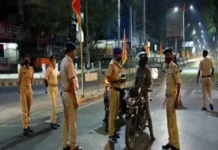If your biggest monsoon fear has been getting malaria or dengue or chikungunya, recent cases show you can get all three together. Although ‘triple concurrent infection’ is rare, it makes treatment very difficult.
Researchers at Jamia Millia Islamia (JMI) have reported two such cases in the medical journals Intervirology and Virus Disease. Dr Mohammad Abdullah, one of the researchers, told KhabarLive the first case was of a threeyear-old who visited JMI’s primary health centre in August 2016. The second involved a 21-year-old student who visited the centre about a month later.
“Both had high fever along with chills, uneasiness, body pain and headache when they visited our primary health centre. They tested positive for malaria, so we started treatment while the results of dengue and chikungunya tests were awaited. To our surprise, they tested positive for both.” Doctors say a national action plan is needed to check such infections.
Last June, Sri Balaji Action Medical Institute in Paschim Vihar, Delhi, also reported a 55-year-old suffering from the three diseases spread by two mosquito types. Malaria is spread by Anopheles mosquitoes, and dengue and chikungunya by Aedes aegypti.
Doctors say a national action plan is needed because increasing construction activity and poor waste management could make triple concurrent infection common.
Due to poor mosquito-control measures, both anopheles and Aedes aegypti populations become widespread in Delhi in the post-monsoon period. They cause an epidemic-like situation every year,” said Dr Suranjit Chatterjee, senior consultant, medicine department at Apollo Hospital. “We have seen cases of patients suffering from any two of these diseases at the same time, but triple infection is rare. It poses a diagnostic dilemma and higher risk of morbidity as well.”
The June 2017 case at Sri Balaji Action Medical Institute required intensive treatment with “intravenous artesunate (medication for malaria), ceftriaxone (antibiotic), pantocid (proton-pump inhibitor), pacimol, emset, mucaine gel application for oral ulcers and plenty of intravenous dextrose, ringer lactate and dextrose normal saline during hospital stay,” a report in Journal of Vector Borne Diseases says. #KhabarLive







